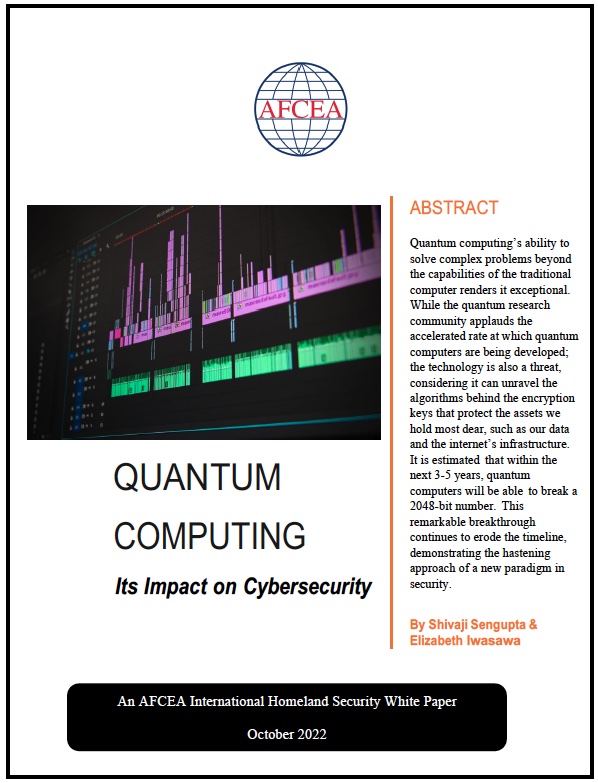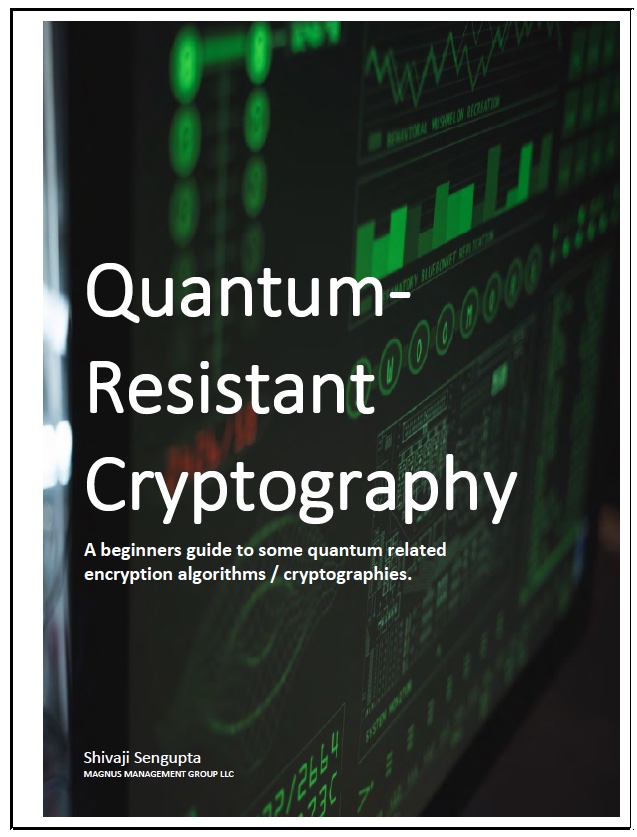Quantum computing’s ability to solve complex problems that are beyond the capabilities of the traditional computer renders it exceptional. While the quantum research community applauds the accelerated rate at which quantum computers are being developed; it is also a threat considering it can unravel the algorithms behind the encryption keys that protect the assets we hold most dear (like our data and the internet’s infrastructure). It is estimated that within the next 3-5 years quantum computers will be able to break a 2048-bit number. This remarkable breakthrough continues to erode the timeline, demonstrating the hastening approach of a new paradigm in security.
.
The most interesting areas we have our focus on are:
Quantum Cryptography – Cryptography is the process of encrypting data, or converting plain text into scrambled text so that only someone who has the right “key” can read it. Quantum cryptography, by extension, simply uses the principles of quantum mechanics to encrypt data and transmit it in a way that cannot be hacked.
Quantum Communication – Quantum communication takes advantage of the laws of quantum physics to protect data. These laws allow particles—typically photons of light for transmitting data along optical cables to take on a state of superposition, which means they can represent multiple combinations of 1 and 0 simultaneously.
Quantum Simulations – Approaching quantum simulation from both a theoretical and an experimental perspective paves the way towards discovery. Quantum simulations will pave the way for the next generation R&D and research in areas like bio-sciences, medical research, material science etc.
Thought Leadership
The leadership at Magnus has worked closely with leadership in the R&D space at DHS and Leidos to put together a panel discussions at the AFCEA TechNet Cyber 2023 & AFCEA FedID 2022 conferences in Baltimore and Atlanta to discuss some of these technologies and help provide a vision and timeline of when these technologies will be relevant.
.
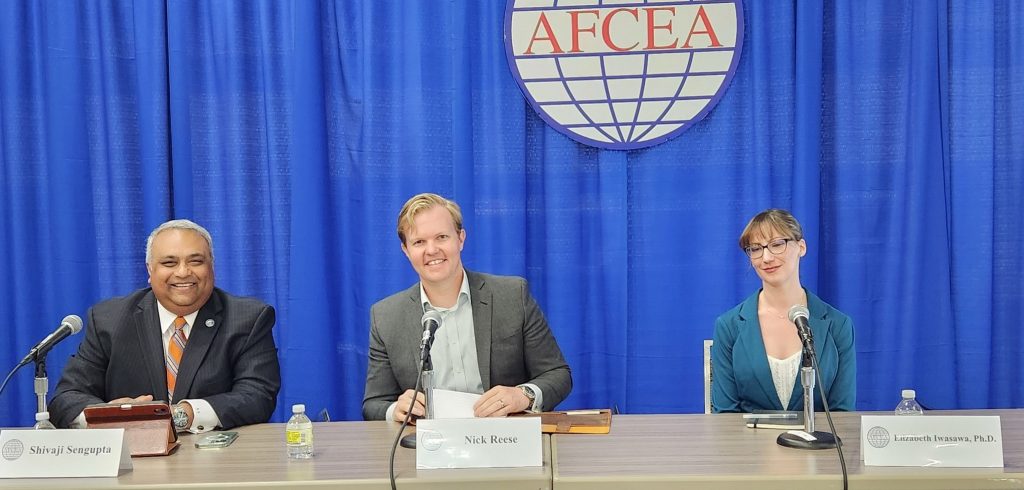
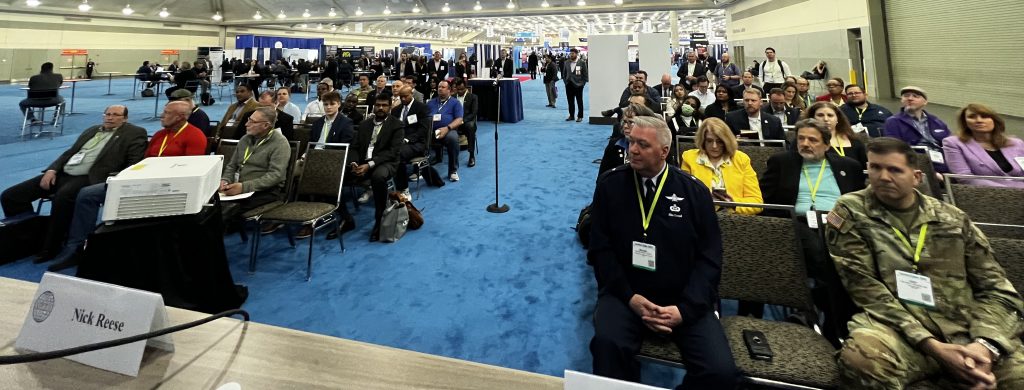
.
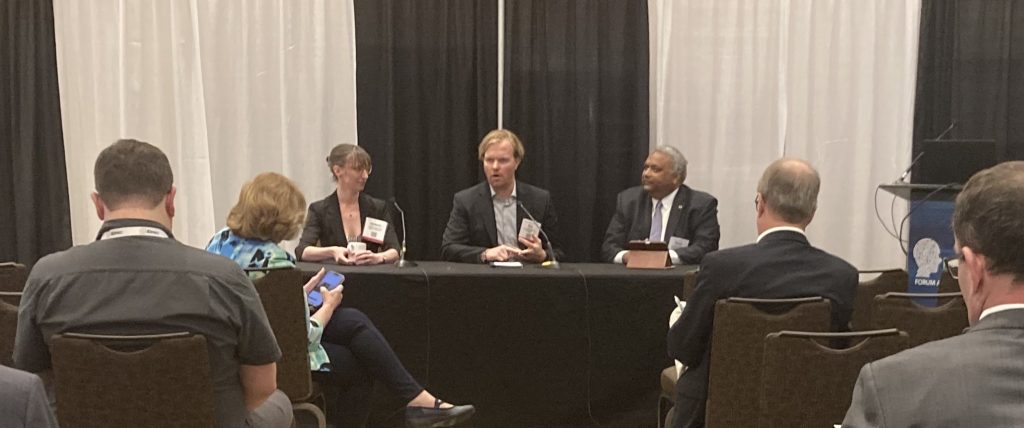
.

.
Panel Discussions:
Quantum computing’s ability to solve complex problems that are beyond the capabilities of the traditional computer renders it exceptional. While the quantum research community applauds the accelerated rate at which quantum computers are being developed; it is also a threat considering it can unravel the algorithms behind the encryption keys that protect the assets we hold most dear (like our data and the internet’s infrastructure). It is estimated that within the next 3-5 years quantum computers will be able to break a 2048-bit number. This remarkable breakthrough continues to erode the timeline, demonstrating the hastening approach of a new paradigm in security.
It is inevitable that threats will accompany this paradigm shift, it is also worth understanding what that threat might look like in reality and where will it come from. While much research still needs to take place, it is certain that the greatest risk will come from the data that must retain its secrecy well into the future. The data being referred to includes National Security Data, Banking Data, PII data, Health data, Intellectual Property, etc. This panel will outline challenges and solutions impacting the Government and industry related to quantum computing.
Quantum Computing Whitepapers
-
Top 5 Successful Initiatives in AI and Cybersecurity
This report explores five successful initiatives that leverage artificial intelligence (AI) to enhance cybersecurity measures, showcasing their implementation, impact, and key achievements. I. Introduction A. Background on Cybersecurity Challenges B. […]
Knowledge Base & Resources
While there are many articles and videos on Quantum Computing, below are some interesting documents, videos & resources:
.
US President Joe Biden has signed the Quantum Computing Cybersecurity Preparedness Act into law on December 21, 2022. The law is designed to secure the federal government systems and data against the threat of quantum-enabled data breaches, ahead of ‘Q Day’ – the point at which quantum computers are able to break existing cryptographic algorithms. Experts believe quantum computing will advance to this stage in the next five to 10 years, potentially leaving all digital information vulnerable to cyber-threat actors under current encryption protocols.
.
IBM Quantum Compute Resources – IBM Quantum offers both open and premium access to a wide variety of quantum systems. All quantum systems deployed by IBM Quantum are based on superconducting qubit technology, as the control and scalability of this technology pave a clear path to achieving quantum advantage with these systems. – https://quantum-computing.ibm.com/services/resources/docs/resources/manage/systems/
.
DHS Post-Quantum Cryptography – While quantum computing promises unprecedented speed and power in computing, it also poses new risks. As this technology advances over the next decade, it is expected to break some encryption methods that are widely used to protect customer data, complete business transactions, and secure communications. DHS’s new guidance will help organizations prepare for the transition to post-quantum cryptography by identifying, prioritizing, and protecting potentially vulnerable data, algorithms, protocols, and systems. – https://www.dhs.gov/quantum
.
IBM – Very interesting how an #IBM #QuantumComputing Expert Explains quantum Computing to 5 different age groups. Must view for someone trying to understand #quantumcomputing.
.
Quantum Terms and Lexicon
Quantum key distribution (QKD) is a secure communication method which implements a cryptographic protocol involving components of quantum mechanics. It enables two parties to produce a shared random secret key known only to them, which can then be used to encrypt and decrypt messages. It is often incorrectly called quantum cryptography, as it is the best-known example of a quantum cryptographic task.







